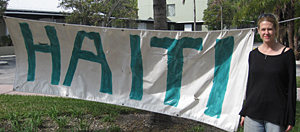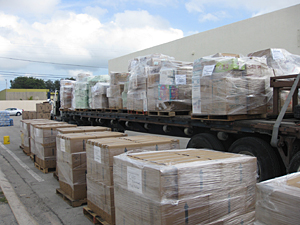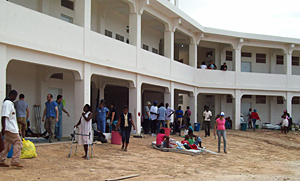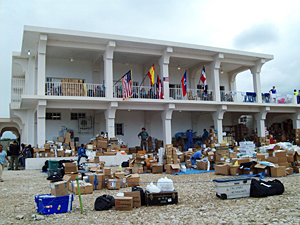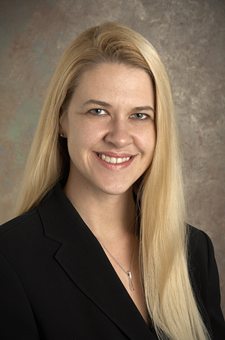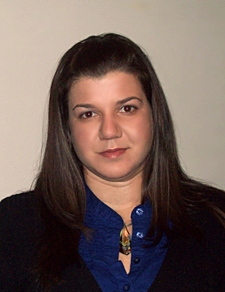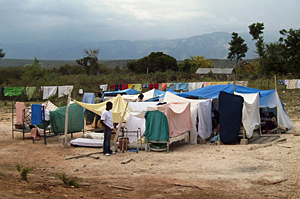
ADVERTISEMENT
- Rozovsky wins prestigious NSF Early Career Award
- UD students meet alumni, experience 'closing bell' at NYSE
- Newark Police seek assistance in identifying suspects in robbery
- Rivlin says bipartisan budget action, stronger budget rules key to reversing debt
- Stink bugs shouldn't pose problem until late summer
- Gao to honor Placido Domingo in Washington performance
- Adopt-A-Highway project keeps Lewes road clean
- WVUD's Radiothon fundraiser runs April 1-10
- W.D. Snodgrass Symposium to honor Pulitzer winner
- New guide helps cancer patients manage symptoms
- UD in the News, March 25, 2011
- For the Record, March 25, 2011
- Public opinion expert discusses world views of U.S. in Global Agenda series
- Congressional delegation, dean laud Center for Community Research and Service program
- Center for Political Communication sets symposium on politics, entertainment
- Students work to raise funds, awareness of domestic violence
- Equestrian team wins regional championship in Western riding
- Markell, Harker stress importance of agriculture to Delaware's economy
- Carol A. Ammon MBA Case Competition winners announced
- Prof presents blood-clotting studies at Gordon Research Conference
- Sexual Assault Awareness Month events, programs announced
- Stay connected with Sea Grant, CEOE e-newsletter
- A message to UD regarding the tragedy in Japan
- More News >>
- March 31-May 14: REP stages Neil Simon's 'The Good Doctor'
- April 2: Newark plans annual 'wine and dine'
- April 5: Expert perspective on U.S. health care
- April 5: Comedian Ace Guillen to visit Scrounge
- April 6, May 4: School of Nursing sponsors research lecture series
- April 6-May 4: Confucius Institute presents Chinese Film Series on Wednesdays
- April 6: IPCC's Pachauri to discuss sustainable development in DENIN Dialogue Series
- April 7: 'WVUDstock' radiothon concert announced
- April 8: English Language Institute presents 'Arts in Translation'
- April 9: Green and Healthy Living Expo planned at The Bob
- April 9: Center for Political Communication to host Onion editor
- April 10: Alumni Easter Egg-stravaganza planned
- April 11: CDS session to focus on visual assistive technologies
- April 12: T.J. Stiles to speak at UDLA annual dinner
- April 15, 16: Annual UD push lawnmower tune-up scheduled
- April 15, 16: Master Players series presents iMusic 4, China Magpie
- April 15, 16: Delaware Symphony, UD chorus to perform Mahler work
- April 18: Former NFL Coach Bill Cowher featured in UD Speaks
- April 21-24: Sesame Street Live brings Elmo and friends to The Bob
- April 30: Save the date for Ag Day 2011 at UD
- April 30: Symposium to consider 'Frontiers at the Chemistry-Biology Interface'
- April 30-May 1: Relay for Life set at Delaware Field House
- May 4: Delaware Membrane Protein Symposium announced
- May 5: Northwestern University's Leon Keer to deliver Kerr lecture
- May 7: Women's volleyball team to host second annual Spring Fling
- Through May 3: SPPA announces speakers for 10th annual lecture series
- Through May 4: Global Agenda sees U.S. through others' eyes; World Bank president to speak
- Through May 4: 'Research on Race, Ethnicity, Culture' topic of series
- Through May 9: Black American Studies announces lecture series
- Through May 11: 'Challenges in Jewish Culture' lecture series announced
- Through May 11: Area Studies research featured in speaker series
- Through June 5: 'Andy Warhol: Behind the Camera' on view in Old College Gallery
- Through July 15: 'Bodyscapes' on view at Mechanical Hall Gallery
- More What's Happening >>
- UD calendar >>
- Middle States evaluation team on campus April 5
- Phipps named HR Liaison of the Quarter
- Senior wins iPad for participating in assessment study
- April 19: Procurement Services schedules information sessions
- UD Bookstore announces spring break hours
- HealthyU Wellness Program encourages employees to 'Step into Spring'
- April 8-29: Faculty roundtable series considers student engagement
- GRE is changing; learn more at April 15 info session
- April 30: UD Evening with Blue Rocks set for employees
- Morris Library to be open 24/7 during final exams
- More Campus FYI >>
8:26 a.m., Feb. 16, 2010----When a 7.0 earthquake struck Haiti on Jan. 12, millions of people were impacted. Hundreds of thousands of people died or were severely injured, and there was widespread and severe damage to property and infrastructure.
Within two weeks, researchers from the University of Delaware's Disaster Research Center (DRC) traveled to Florida and the Dominican Republic to begin to understand the immense humanitarian operation underway to assist the devastated nation.
Funded as part of an ongoing National Science Foundation (NSF) grant to study emergency logistics and relief convergence after disasters, this quick response effort allowed the researchers to collect valuable data on the catastrophic earthquake and begin to understand some of the complexities of the international involvement.
Tricia Wachtendorf, assistant professor of sociology who is co-principal investigator on this NSF study with Rennselaer Polytechnic Institute (RPI), explained that the destruction of or damage to critical infrastructure -- such as airports, ports, roads, hospitals, and potential warehouse space -- made the relief effort particularly challenging. Early efforts needed to simultaneously concentrate on bringing in life-sustaining supplies while at the same time working to bring back up an infrastructure to support that assistance.
Wachtendorf, who is also the associate director of DRC, spent eight days in the Miami, Fla., area where her work focused on formal and informal relief efforts as well as the repatriation of Haitian Americans.
“It was valuable to really understand the flow of supplies coming out of Miami,” Wachtendorf said, “from the small donation drives at local retailers, businesses and churches, to homeless shelters and cab drivers providing vehicles transport goods, to efforts by the City of Miami and the Haiti relief task force at their warehouse, to the role of USAID and Homestead Air Reserve Base, to the involvement of development and faith-based organizations with a long history of work in Haiti.”
She was also able to observe repatriates processed through Miami airport, as well as learn about the organizations involved in this effort to assist tens of thousands of Haitian Americans as they attempted to leave Haiti for the United States. Many planes that were leaving Florida with relief supplies were subsequently returning with evacuees.
Other repatriates returned to the United States on commercial air carriers or private planes. Some were Americans who were visiting family, vacationing, or working in Haiti; others were Haitian Americans who resided in Haiti and were now coming to stay with relatives.
Although not part of the original grant to study relief operations, the information Wachtendorf collected will be helpful as Joanne Nigg, professor of sociology, and DRC research assistant Manuel Torres begin to examine the complex issues of disaster-related repatriation more closely. Torres, who recently defended dissertation in sociology, was awarded a quick response grant from the University of Colorado Boulder to return to Florida to collect additional information.
The quick response team also included Jenniffer Santos-Hernández, a doctoral candidate in sociology and research assistant at the DRC. Santos-Hernández is originally from Puerto Rico and has conducted research on development and social vulnerability to disasters in the Caribbean for several years. She traveled to the Dominican Republic in January to collect information about the role that country was playing in the relief provision.
Her field work started in Santo Domingo where she spoke to representatives from several Dominican organizations directly involved in the response to Haiti. From Santo Domingo, she drove to Santiago to meet with leaders from religious organizations leading the collection of foods and other supplies as well as coordinating the logistics to transport them to Haiti.
She then moved to the border municipality of Jimani where she visited hospitals, camps, and mobile kitchens.
Santos-Hernández talked to numerous officials about the international humanitarian operation to support thousands of Haitians that crossed the border through Malpasse, one of the main crossing points between Haiti and the Dominican Republic.
Santos-Hernández said that, “although the situation in Jimani is very different from the one presented by the media, it is certainly a very challenging and complex one. Jimani is a rural, vulnerable and poor community with very limited resources. Then, all of a sudden, it must respond to the needs of thousands of evacuees and collaborate with the relief efforts of response teams and delegations from numerous countries.”
Santos-Hernández's deployment was limited to five days as she was teaching a Winter Session introduction to sociology class. She noted that an added benefit of the trip was that she was able to immediately integrate her observations into the classroom. “The students were very interested in the event and in the work that I was doing,” she said. “Not only did it give me an opportunity to be on the ground and collect valuable data, but within a few weeks of the event, UD students were able to learn about the root causes and pressures that have created unsafe conditions for the population, as well as about some of social problems emerging after this terrible disaster.”
A collaborator of Wachtedorf's from RPI, Prof. Jose Holguin-Veras was able to spend a day in Port au Prince, but the team decided to focus on Miami and the Dominican Republic first and hold off on a DRC research trip to Haiti until a few weeks have gone by. The researchers balance the value of collecting data that will simply not be there a few months after the event with the importance of not getting in the way of relief efforts and ensuring they have the logistics to carry out our work.
“This is a long-term effort,” explained Wachtendorf. “There are many important lessons we will be able to learn from this event, and hopefully those lessons will be integrated into practice to improve future humanitarian operations.”
Miami and Dominican Republic photos courtesy of Tricia Wachtendorf and Jenniffer Santos-Hernández.



